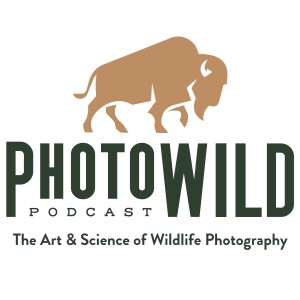
Monday Mar 25, 2024
Episode 19: The LOST EPISODE. Creating thoughtful outdoor studios, working with flash, and hummingbirds of the tropics
-
things hummingbirds
-
Hummingbirds are some of the most extraordinary families of birds in the world whose natural history often defies belief
-
Understanding the natural history of these species is important for trying to sell photographs of these birds as 99% of photographs we see of hummingbirds are created with non-native species in situations that would never occur in the wild
-
Understanding how to use flash will dramatically elevate your bird photography, especially when working with hummingbirds
-
Flash is one of the most important creative tools we wield as visual artists
-
Using flash to think outside the box can elevate your photography to new levels
The lost episode has been found!
In this show, Jared Lloyd and Annalise Kaylor discuss photographing hummingbirds 8,000 feet up in the cloud forest of Panama. Far from being diminutive and delicate little birds, hummingbirds are some of the fiercest, most territorial, and biologically extraordinary species of avifauna in the world. Did you know the Aztec god of war was named after and depicted as a hummingbird? Did you know the cold weather of mountains helped to drive the evolution of hummingbirds? Did you know that at any given moment, hummingbirds are no more than 20 minutes away from starvation and are forced to go into a state of torpor (true hibernation) every single night to survive! And when it comes to biological diversity, Panama plays home to roughly 1/4 of all hummingbirds in the world.
Photographing hummingbirds in the tropics can be one of the most impossible tasks you will ever encounter as a wildlife photographer - if done wrong. As anyone who has laced up their boots and trekked down a muddy trail into the emerald kingdom of the rainforest can attest, wild encounters with these birds are extraordinarily fleeting and often mere flashes of color in the mid-canopy. For this reason, 99% of hummingbird photography occurs at purpose built setups with anywhere between 1 - 5 off-camera flashes.
Professional nature photographers the world over utilize field set-ups, or outdoor studios, for creating images that would not be possible otherwise. However, far too often, non-native species are used to create these photographs. While hummingbirds are only found in the Americas, often we see them depicted with flowers from South Africa such as the bird of paradise because these are planted around eco lodges where most of these photographs are created. Likewise, species of poison frogs that may be rare and endemic to a small isolated region of Central America, are more often than not, depicted on flowers from Asia such as the Asian ginger. How we create field set-ups matter. From how we work with the animals to keep them safe to ensuring that we creating photographs that actually tell the unique story of the species within our photographs, a lot of thought and intention should go into how these set-ups are created.
Flash is an important component of photographing not only just hummingbirds but most wildlife when working in the dark recesses of the neotropical rainforests. While flash is a staple of so many genres of photography, when it comes to nature photography it is the least understood aspect of the craft. But it shouldn’t be this way. Learning how to utilize flash will revolutionize your photography in so many ways.
Interested in learning more about the workshops we do in Panama?
https://www.photowildworkshops.com/cloud-forest-panama-workshop
https://www.photowildworkshops.com/panama-wildlife-photography-workshop
The PhotoWILD Podcast is a production of PhotoWILD Magazine. Not familiar with us? https://photowildmagazine.com
Comments (0)
To leave or reply to comments, please download free Podbean or
No Comments
To leave or reply to comments,
please download free Podbean App.